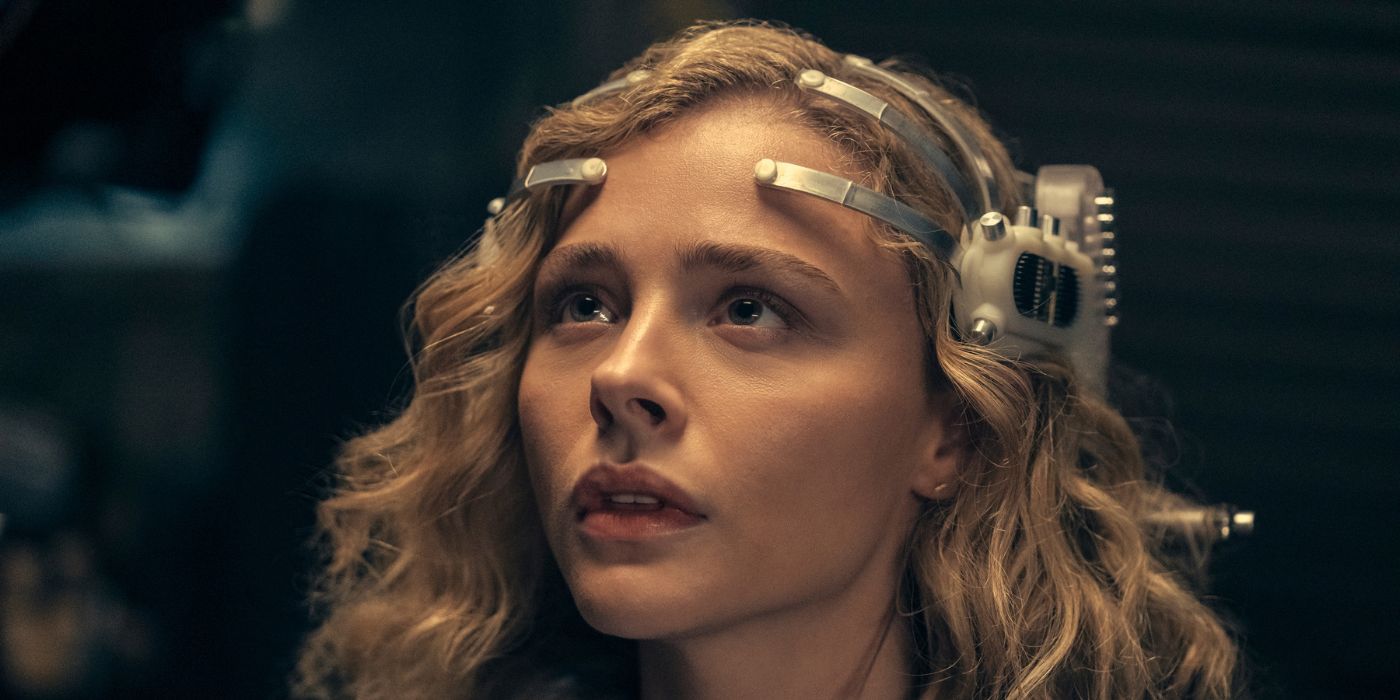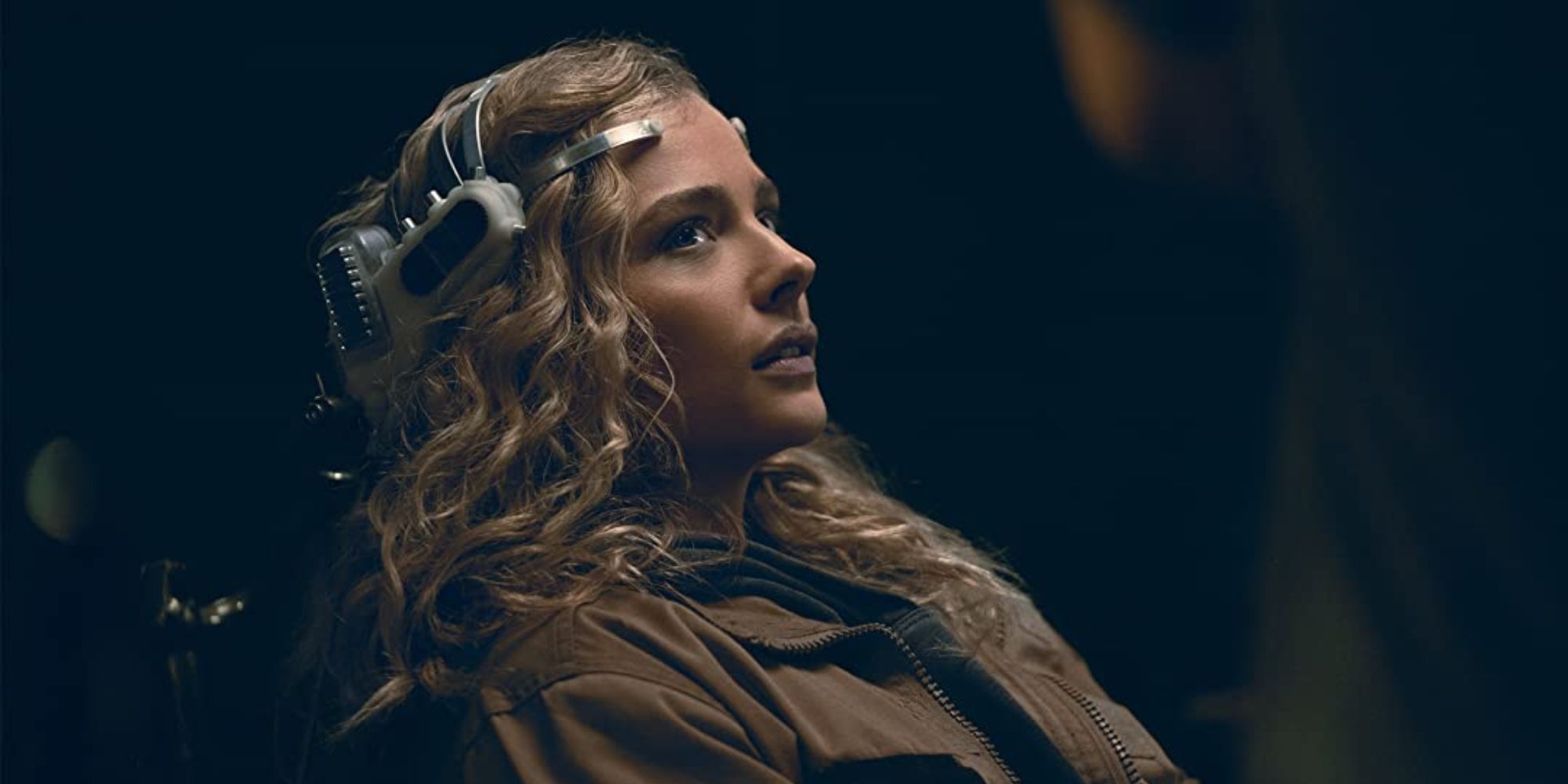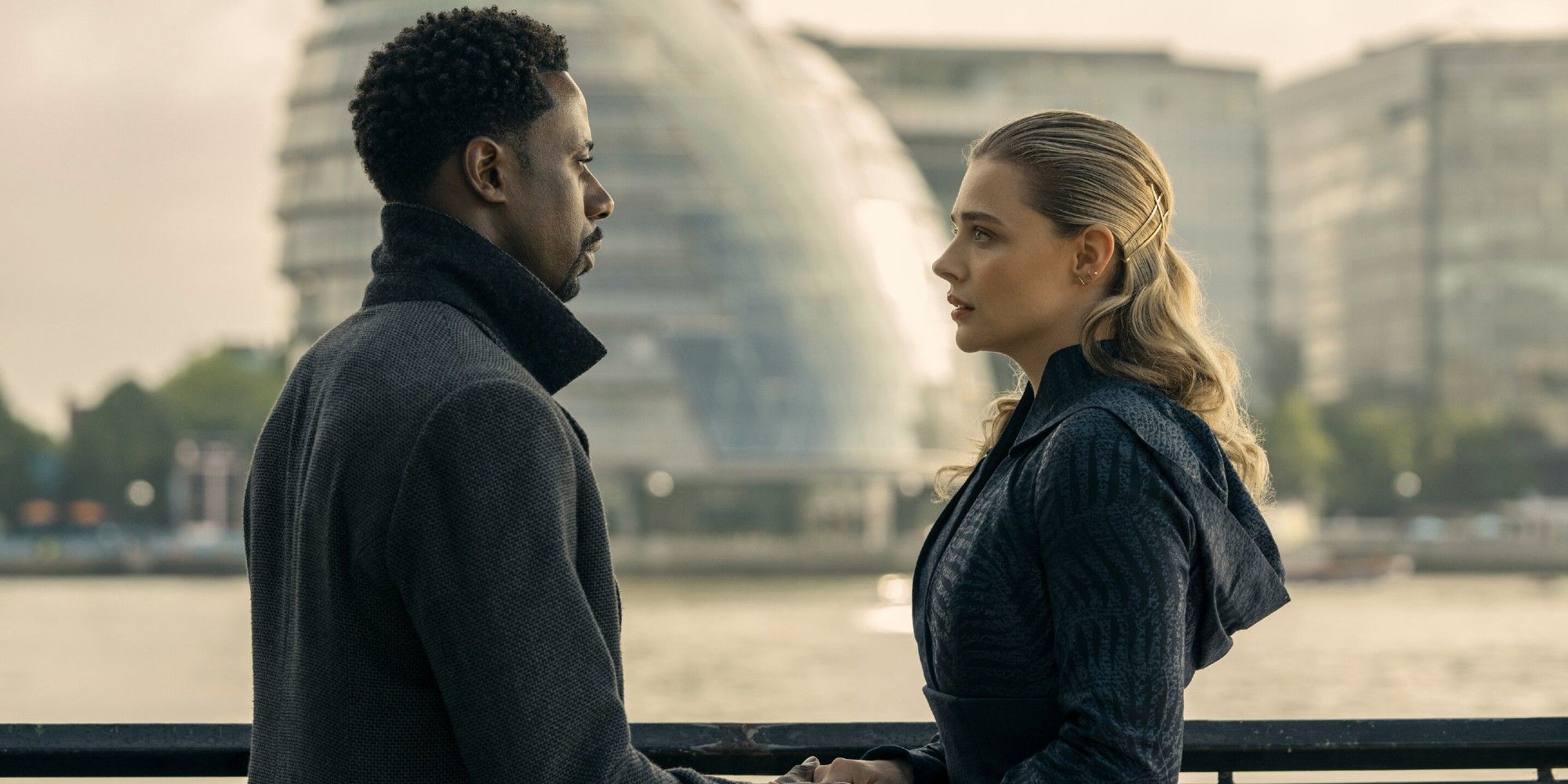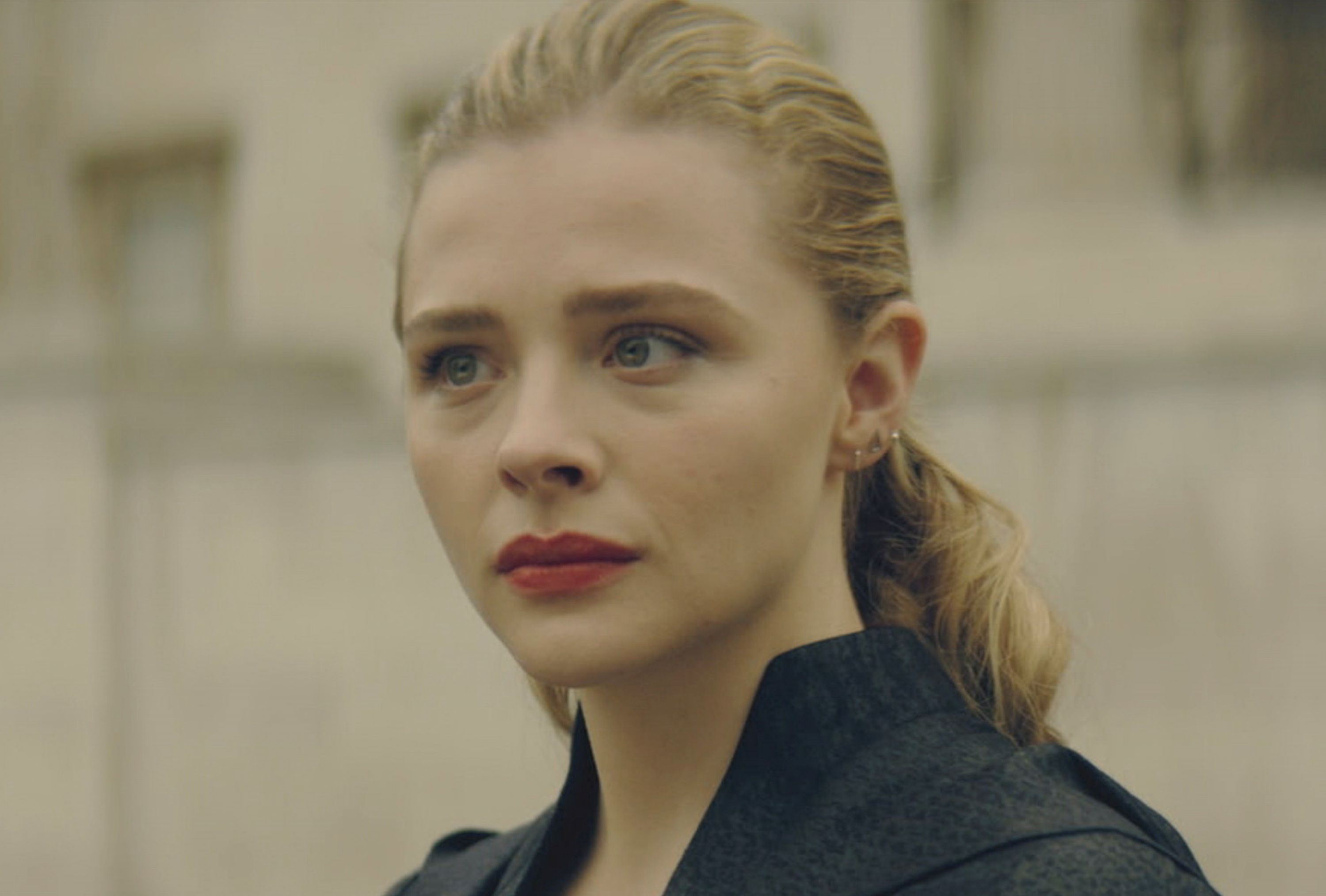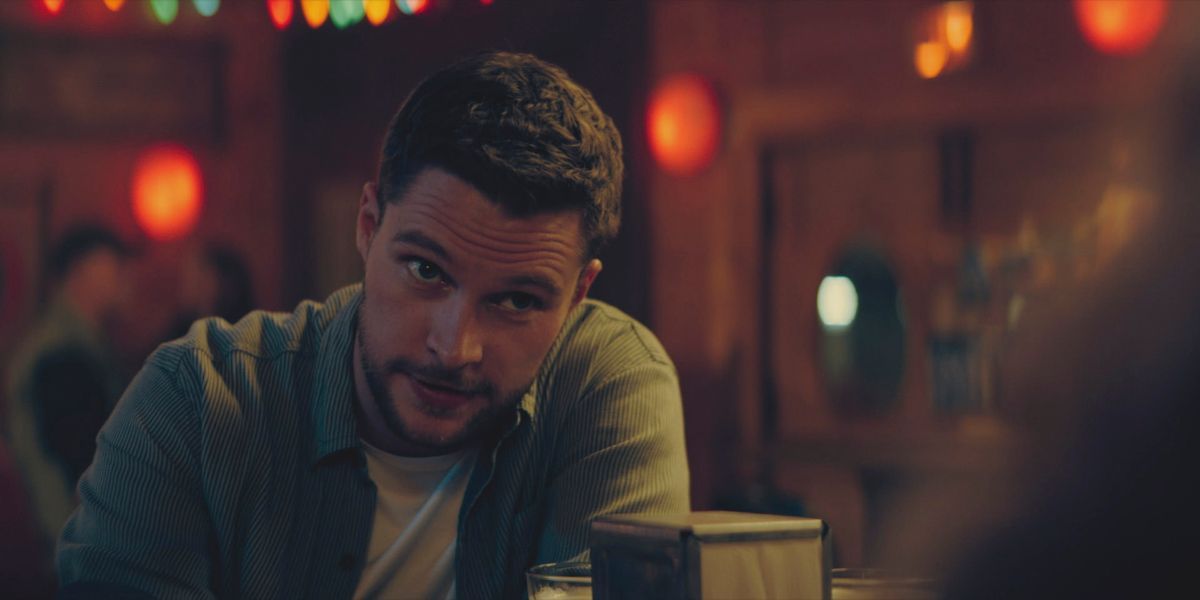Based on the novel by William Gibson, created for television by Scott B. Smith, and executive produced by Jonathan Nolan and Lisa Joy, the Amazon Studios original series The Peripheral follows Flynne Fisher (Chloë Grace Moretz) and her brother Burton (Jack Reynor) in their life in small town America in 2032, as they venture deeper and further into a simulation set in post-apocalyptic future London. While Flynne uncovers the mystery of the Sim and the dangerous information it contains, she realizes that she must find a way to protect herself and her family before it’s too late.
During this 1-on-1 interview with Collider, executive producer Smith talked about how he became a part of this creative team, why this needed to be a TV series and not a movie, figuring out how to end the season, what Moretz brought to the role of Flynne, watching the character relationships form during the shoot, how one of their most colorful episode titles came to be, and whether they’re hoping to do more seasons.
Collider: Because there is a big creative team on this, how did all of this come together? How did it all fall into place?
SCOTT B. SMITH: Vincenzo Natali, one of our directors, is friendly with [William] Gibson. He had worked to adapt Neuromancer for many years and became close to Gibson, who gave him an early draft of the book. And then, Vincenzo brought it to Kilter, Lisa [Joy] and Jonah [Nolan]’s company, who he’d done Westworld with. Yeah. I had written and developed a pilot with Bad Robot, and had developed a relationship with Athena Wickham, who runs Kilter, so she sent me the book.
What was it about the novel and the work of Gibson that made you not only see an adaptation, but made you see how it could be turned into a TV series?
SMITH: The cast of characters is what drew me to it. Gibson’s characters are often overlooked because of his brilliance, in terms of the science fiction part. He has this gift, as a naturalistic, realistic fiction writer, and creating this world, with Flynne and her family, is what drew me in, more than the sci-fi of it all. To do those character moments justice in a two-hour feature, you would be servicing the plot and explaining the world building and everything, but none of the character moments would make it through. Even the eight hours was rough.
Did you write this with the idea that you would also be the showrunner for it?
SMITH: I wrote some fiction, and then I did some indie screenplays. My film worldview was that you hand over the script, and they shove you out the door, and I was comfortable with that. I thought I would do that here, but the TV world doesn’t work that way. I had many conversations with Lisa and Jonah, where I was like, “Okay, good luck.” And they were like, “No, no, no.” They’re so smart. Their knowledge base is so vast. They were incredibly patient with my very steep learning curve, both in terms of the sci-fi world and that this was my first TV production. Greg Plageman was the real showrunner. He was there for production in London, for all those months during the height of the pandemic. He really is the one who did the heavy lifting.
What was it like to have that kind of an experience?
SMITH: I was surprised by how much I actually enjoyed being on set. I’m used to being alone in a room with my computer. The idea of waking up early and spending a long day with a lot of people felt daunting to me. But actually, once I adapted to that, I could see the benefit of having the writer on set, just because they’re block shooting. They’re shooting out of order, so it’s hard for people to keep track of tiny details that end up really mattering. I understand the need for the writer to be present at that level. I’d been told that you write the show, and then you shoot the show, and you remake it, and then you edit the show, and you remake it again. All of that was a definite learning experience.
Were there conversations about doing this as a TV series that would then also have other seasons? Are you looking to continue telling the story, beyond this season?
SMITH: Yeah, that’s all of our hope, but we’ll see what the fates decide. It was seen as an ongoing series.
How did that determine how you ended the season? How do you figure out the best way to end a season, when you tell a story like this? How do you balance giving answers, but maybe leaving some unanswered questions?
SMITH: That’s a good question. It’s really rough. There were a lot of different possibilities, honestly. My initial assumption of how much plot would be consumed by eight episodes was off. I thought we could do so much more, but I realized that’s not actually the metabolism of it. TV is much different than feature writing. There’s definitely some juggling.
I would imagine the decision of whether or not to kill a character must also be difficult. Do you just know when that has to happen in the story?
SMITH: There is an element of trying out different things, but then trusting that, collectively, there’s a satisfying amount of closure, but also the seed for drawing people back for a second season. They were amazing with the casting, and they got these great actors who created these characters.
What were the biggest challenges that you thought you would have with this, going into it, and did that actually end up being the actual biggest challenges, or did you find other challenges along the way?
SMITH: That’s a good question. I was probably a little bit daunted by the sci-fi element, just because I don’t have a vast viewing or reading sci-fi library in my head. That was intimidating, but I had people collectively guarding me from driving off the road with that. The plot consumption rate was probably the biggest challenge.
This story is set in small town America and post-apocalyptic London, which are really interesting ends of the spectrum. What did you want to do to play with what could be in the virtual world?
SMITH: Some of that’s from the book. And then, because of his relationship with Gibson, Vincenzo saw himself as a little bit of a guardian of the temple, along with Lisa and Jonah. Early on, there was a sense of definitely needing to differentiate it and having a desire to have the story come from Flynne’s perspective. She’s coming into this new world, which seems different and threatening.
Was there anything that you tried to write or wanted to include that there was just no way to then translate to actually filming it?
SMITH: Gibson is so smart about his near futurism. There were small details that would’ve been really cool, but just knowing that they were essentially background stuff, and they weren’t driving anything with the story, we couldn’t afford to do it. There are LEGOs in the book in the far future that are mobile, and they can change into a ball and roll across the table. Things like that would have been fun. I don’t think this is a spoiler, it’s more of a detail, but a character has a pet where they recreated an extinct animal. That was not plot-necessary, but we managed to get that in, and it looked great.
Flynne is such an interesting character that you really feel for her because she’s thrown into this whole world that she’s not expecting, and it turns everything upside down for her. What was it like to have Chloë Grace Moretz step into that role and to see how she brought the character to life?
SMITH: She was all in, in terms of the character and the world. She’s the smartest person on the set. She’s been doing it since she was a little kid. She’s from the south, so she could hear when we were getting a little wonky with the Southern accents. And she did a lot of her own stunts. Flynne is the center pillar of the series, there’s no question, and Chloë is the center pillar of Flynne.
Did anything about the character have to be changed with her in the role? Was anything adapted for her?
SMITH: That’s a good question. I don’t think so. The relationship between her and Burton in the book is very specific. It’s warm, but a little prickly. Part of their love for each other is that they can give each other shit. Chloë and Jack [Reynor], who played Burton, had this immediate chemistry, even off camera. They played video games together. They were just this tight little unit. We got really lucky with that.
What was it like to bring all of these actors together and see them interacting and finding the relationship dynamics?
SMITH: That’s part of what’s been eye-opening for me. Because I hadn’t done TV, I hadn’t seen relationships develop over this long of a stretch of time. You start to realize that there’s a spark between characters. And then, you have that in your head for Season 2. We have some thick chunks of dialogue that could be terrible with the wrong actors. It could be scene-chewing. But they handled it with grace and claimed it as their own.
There are so many interesting and memorable standout fight sequences in this. Do you have a favorite one?
SMITH: That’s a good question, too. The fight in the car was tough to film. The fight in the lobby is great, too.
I also love that there’s an episode entitled, “Fuck You And Eat Shit.” How did that title come about?
SMITH: When we wrote the scripts, there were different title. Because of the editing, we shuffled so much and pulled stuff forward that some of the titles became moot, and that was one of them. We had to come up with something, so we put together a list of possibilities, and that kept sticking out. We threw it out there and were like, “Amazon is gonna shoot that down.” But they didn’t.
The Peripheral is available to stream at Prime Video.

